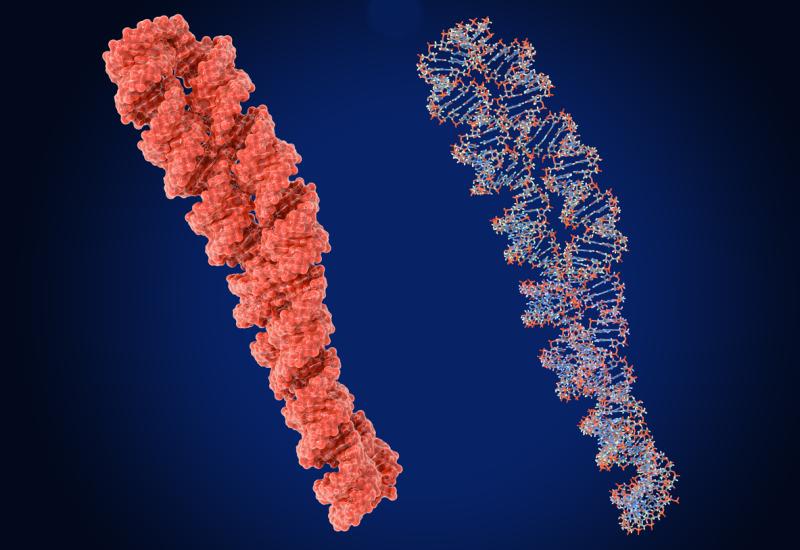
Mersana gets its rescue bid
But the Day One deal is still 29% below where the shares stood at the start of this year.
But the Day One deal is still 29% below where the shares stood at the start of this year.

Mersana’s decision to slash its workforce in May and focus entirely on a B7-H4-targeting ADC has delivered a buyout for the company, with Day One on Thursday tabling a $129m takeover. That’s just about the only positive for Mersana investors, who until yesterday had seen the stock lose 75% of its value year to date.
Even so, the up-front value of the takeover, $25 per Mersana share, is 29% below where the shares were trading in January, though contingent value rights attached to the deal could, in theory, result in an additional future payout. Realistically, the only winners here are those who bought into Mersana stock in recent months in the hope of a near-term rescue.
That the rescue should have come from Day One makes some sense, given that this company has little in the way of an R&D pipeline on which to focus after last year’s approval of the RAF kinase inhibitor Ojemda for a common childhood brain cancer, plus the fact that even Ojemda has been licensed ex-US to Ipsen.
Day One’s only notable R&D asset is the PTK7 inhibitor DAY301, and this too was bought in, namely from MabCare in a mid-2024 deal worth $55m up front. It’s notable, however, that the air has been escaping from the bubble for this target, with recent discontinuations by Genmab, and Pfizer/AbbVie, so you can’t blame Day One for wanting to hedge its bets.
Any hope?
Whether what remains of Mersana is much of a hedge is debatable, as the target company’s lead asset, the anti-B7-H4 ADC emiltatug ledadotin, looks unlikely to move the needle. Beyond this Day One does get Mersana’s cash ($77m as at mid-2025) and its ADC technology, though there’s little to suggest that the latter has meaningful potential.
Mersana calls the technology Dolasynthen, and says it generates site-specific, homogeneous ADCs, uses a proprietary payload, and has can match the drug-to-antibody ratio (between two and 18) to specific targets. Dolasynthen attracted Johnson & Johnson, which paid $40m up front in a research collaboration that appears to be ongoing.
Clinically Dolasynthen has come up short, given that this is the tech that lies behind emilta-L. That project doesn’t appear to be competitive, and at best it appears to be active only in the highest B7-H4 expressers; those results, from a heavily curated solid tumour dataset toplined in May, caused Mersana’s shares to fall 17%.
Still, Day One reckons it’s seen promise for emilta-L in adenoid cystic carcinoma, a rare type of cancer, though there’s little to go on clinically here, since the latest emilta-L data focused on triple-negative breast cancer. The same solid tumour trial has shown four confirmed responses among nine patients with type 1 adenoid cystic carcinoma.
More generally B7-H4 has underwhelmed as a target for ADC development, with Pfizer’s felmetatug vedotin being a notable discontinuation. In 2023 Mersana scrapped the anti-Napi2b ADC upifitamab rilsodotin, an event that was accompanied by an initial round of workforce redundancies, though that asset wasn’t based on Dolasynthen.
Beyond the fact that their investment hasn’t been entirely wiped out, Mersana shareholders do have some future upside to look forward to, given that the Day One deal includes a CVR element amounting to an additional $156m in total. However, the bulk of this is tied to emilta-L starting phase 3 and being approved by the FDA – events that for now look like long shots.
Clinical-stage anti-B7-H4 ADCs
| Project | Company | Status |
|---|---|---|
| Puxitatug samrotecan | AstraZeneca | Ph3 Bluestar-Endometrial01 trial in B7-H4-selected endometrial cancer |
| Mocertatug rezetecan | GSK/ Hansoh | Ph3 China study in platinum-resistant ovarian cancer |
| LNCB74 | NextCure | Ph1 in solid tumours |
| BG-C9074 | BeOne Medicines | Ph1 in solid tumours, +/- Tevimbra |
| Emiltatug ledadotin | Day One (ex Mersana) | Ph1 in solid tumours; Day One to focus on adenoid cystic carcinoma |
| Felmetatug vedotin | Pfizer | Discontinued in ph1 |
Source: OncologyPipeline.
After this story was published Mersana reported that it finished the 2025 third quarter with a $56m cash balance.
3647













